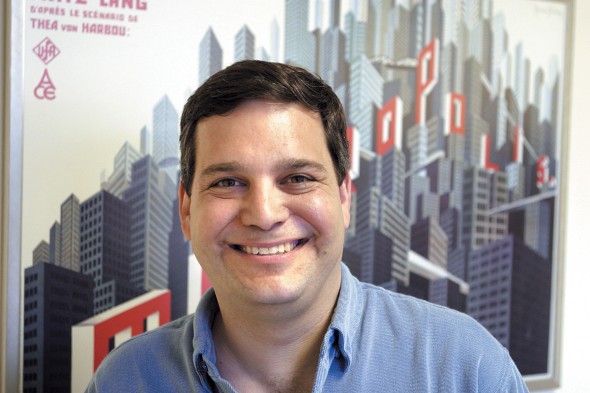Urban planning scholar named ‘Highly Cited Researcher’

Nik Theodore, professor of urban planning and policy, is one of two scholars in his field on the international list. (Click on image for larger file.)
Nik Theodore, professor of urban planning and policy at the University of Illinois at Chicago, was named to a list of the world’s most “highly cited researchers” compiled by Thomson Reuters, the multinational media and information firm.
According to the publishers, the list represents “the people who are on the cutting edge of their fields. They are performing and publishing work that their peers recognize as vital to the advancement of their science.”
Theodore is one of only two urban planners and 177 social science researchers worldwide to be named to the list.
Theodore has conducted widely publicized national studies on wage theft, violations of labor standards and other practices that affect low-wage workers, including those in temporary staffing agencies, the day labor market and domestic work.
His primary focus in academic publishing is neoliberalism and cities, as well policy transfer — the movement of public policies and policy models across jurisdictions. Theodore co-authored a book on policy transfer, “Fast Policy: Experimental Statecraft at the Thresholds of Neoliberalism” (Jamie Peck and Nik Theodore, University of Minnesota Press), to be published next year.
His most frequently cited paper, “Cities and the geographies of ‘actually existing neoliberalism,'” has been garnering increasing citations since its publication in 2002, totaling 1,470 citations to date, according to Google Scholar.
From 2002 to 2012, many of Theodore’s papers were among the top 1 percent cited in the social sciences. Thomson Reuters tracks the productivity of academic researchers by analyzing citations by subject area and year through a methodology detailed at highlycited.com and in a recent book.
“The ranking is based not on just one year’s productivity, but on a decade’s worth of scholarship. Nik’s ranking in the top 1 percent is an unequivocal recognition that he is among the most respected social science scholars in the world,” said Michael Pagano, dean of the UIC College of Urban Planning and Public Affairs.
